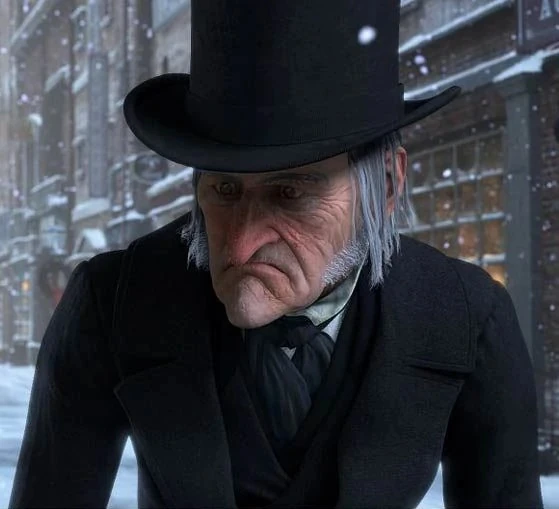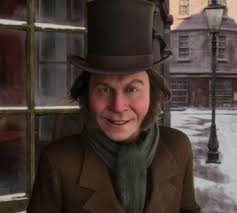1. “Why waste a penny today when it could become a pound tomorrow?”
2. “There’s more profit in solitude than in shared laughter.”
3. “Christmas cheer is an unnecessary expense.”
4. “A tidy ledger is a happy heart.”
5. “Let generosity wait until the accounts are settled.”
6. “Mercy is best measured in gold.”
7. “Who needs warmth when wealth is the fire of the soul?”
8. “Every wasted second is a lost shilling.”
9. “Friendship? I find profit to be the only reliable companion.”
10. “Charity begins at home… and stops at the front door.”
11. “The true spirit of the season lies in the balance sheet.”
12. “Why invest in sentiment when there’s profit in prudence?”
13. “To accumulate is to be wise; to spend is folly.”
14. “Let the past remain behind; there’s no interest to be earned there.”
15. “Every man is richer for keeping his wealth in his own pocket.”
16. “Joy is overrated; wealth underrates nothing.”
17. “To engage in merry making is to indulge in loss.”
18. “The sound of clinking coins is far more pleasing than laughter.”
19. “Celebrate tomorrow, but make today count in pounds and pence.”
20. “Kindness is a capital loss.”
21. “The poor should pull themselves up by their own bootstraps, and not mine.”
22. “Bah humbug! Festivity drains fortune.”
23. “Generosity is a deficit to any good purse.”
24. “Let the world revel; I’ll remain with my riches.”
25. “Fortunes are built on work, not wishes.”
26. “What is the cost of a heart when it robs the pocket?”
27. “Reflection is best used counting one’s coins.”
28. “The less you indulge, the more you have.”
29. “Compassion is a heavy expense for scant return.”
30. “Let the market dictate the merriment.”
31. “Sentiment is a poor substitute for savings.”
32. “Who has time for carolers when there is commerce?”
33. “Being tight-fisted keeps your purse full.”
34. “A frugal life attracts good fortune.”
35. “Tears can’t buy bread; therefore, they have no value.”
36. “Profit is the only true friend.”
37. “Wealth whispers while want shouts loudly.”
38. “Debt is a folly no wise man entertains.”
39. “Melancholy makes a better businessman than mirth.”
40. “Dine not on people’s good humor but on a good fiscal year.”
41. “To live frugally today is to live luxuriously tomorrow.”
42. “Pennies saved are far better than pennies spent.”
43. “Waste no coal on unnecessary warmth.”
44. “Hope is a poor substitute for hard currency.”
45. “In a world of dreams, render your faith to reality.”
46. “Riches speak louder than revelry.”
47. “Spare your soul the burden of unearned generosity.”
48. “The fire of ambition burns hotter than the yule log.”
49. “Winter’s chill is nothing compared to the warmth of wealth.”
50. “Benevolence bankrupts the bearer.”
Fan Theories
Exploring the Enigmatic Character of Ebenezer Scrooge
Ebenezer Scrooge, the central character in Charles Dickens’ A Christmas Carol, has long intrigued readers with his stark transformation from a miserly recluse to a benevolent benefactor. As a result, numerous fan theories have emerged, seeking to delve deeper into the complexities of his character and the real motivations behind his drastic change. This analysis explores some of the most popular and captivating theories about this iconic character.
The Trauma Theory
One prevailing theory suggests that Scrooge’s initial cold-heartedness stems from unresolved childhood trauma. Fans argue that Scrooge’s lonely upbringing and neglect contribute significantly to his aversion to emotional connection and financial generosity. By understanding his journey through the lens of past trauma, viewers gain a more empathetic view of his character’s initial state.
Ghostly Hallucinations Theory
Another intriguing theory posits that Scrooge’s encounters with the ghosts are, in fact, hallucinations brought on by extreme stress and guilt. His visions could be seen as his subconscious manifesting a deep-seated desire for redemption. This interpretation brings a psychological depth to the story, suggesting that Scrooge’s transformation is a self-induced epiphany, rather than supernatural intervention.
The Societal Reflection Theory
This theory suggests that Scrooge represents the quintessential capitalist archetype prevalent in Dickens’ era, serving as a critique of societal values. The ghosts symbolize societal conscience, prompting Scrooge, and therefore the readers, to reflect on the consequences of unchecked greed and indifference. This perspective elevates Scrooge’s transformation into a broader commentary on social reform and moral responsibility.
The Redemption as a Reflection of Self-Aware Growth
A more character-focused theory views Scrooge’s change as a journey of self-aware growth. It argues that through the course of the story, Scrooge experiences moments of vulnerability that allow for the possibility of change. His transformation is not just a result of the ghostly visits but also his innate ability to recognize his own shortcomings and take deliberate steps towards improvement.
Ebenezer Scrooge remains a character shrouded in mystery and ripe for analysis. The multitude of fan theories surrounding him highlights the enduring appeal and complexity of his story. Whether seen through psychological, societal, or purely narrative lenses, these perspectives enrich our understanding of Scrooge, making A Christmas Carol a timeless tale of redemption and human resilience.








